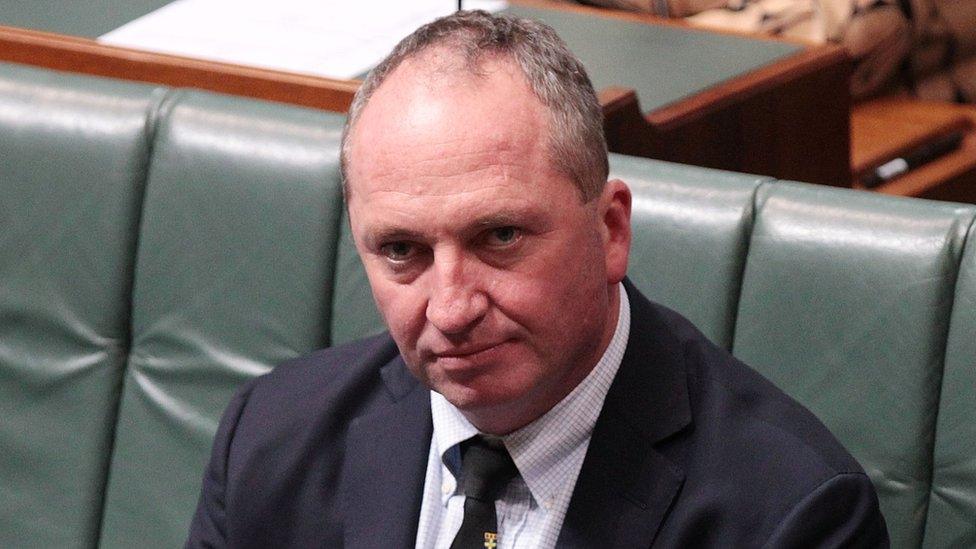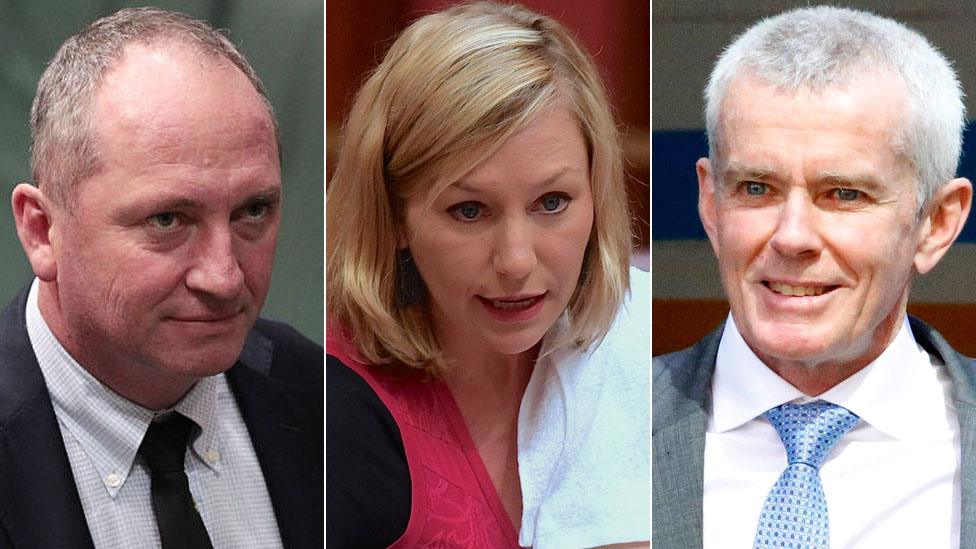Australia dual citizenship saga: Court hearing begins
- Published

Barnaby Joyce inherited New Zealand citizenship from his father
An Australian court has begun a long-awaited hearing into whether seven MPs caught up in a dual citizenship saga should remain eligible for office.
Under constitutional rules, Australian politicians cannot be dual citizens.
The High Court of Australia will clarify whether there are any exceptions, such as for those who did not know they were dual nationals.
If Deputy Prime Minister Barnaby Joyce is disqualified, the government could lose its one-seat majority.
The government will argue that only two politicians who "voluntarily obtained, or retained" dual status should be disqualified.
The other five politicians, including Mr Joyce, were unknowing recipients and should remain eligible, according to the government's defence.
The hearing will last three days. A ruling could be made as early as Thursday, but the court may decide that longer deliberations are necessary.
Potential consequences
The cases involve Mr Joyce and his government colleagues Fiona Nash and Matt Canavan, as well as four politicians from minor parties - Malcolm Roberts, Nick Xenophon, Larissa Waters and Scott Ludlam.
Mr Joyce will attract the most interest because he sits in the lower House of Representatives, where the party with the most MPs forms the government. The others were elected to the Senate.
If Mr Joyce loses his seat, Prime Minister Malcolm Turnbull could oversee a minority government, but the potential outcomes are complex.
The citizenship revelations began in July when New Zealand-born Mr Ludlam, from the Greens, announced he was a dual national.
It prompted dozens of politicians to make public statements about their status.
The court will hear submissions from the seven politicians, the government, and an independent challenger, former MP Tony Windsor.
- Published27 October 2017

- Published9 October 2017
